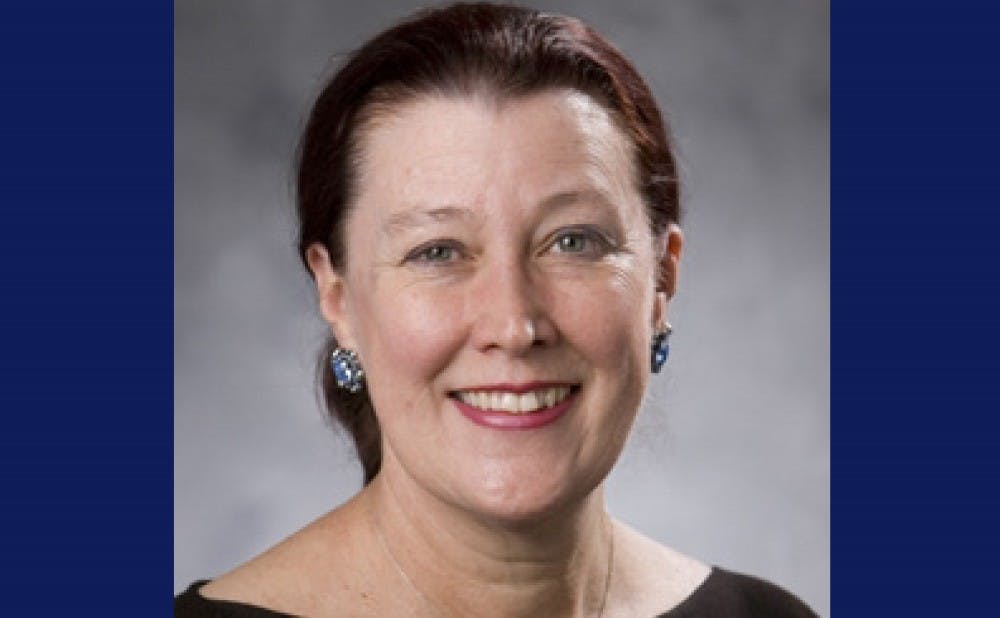Terrie Moffitt, Nannerl O. Keohane university professor of psychology and neuroscience, has been elected to the National Academy of Medicine—one of the highest honors for leaders in health and medicine.
Moffitt joined the Academy with 84 other new members, including 10 international members. The Academy announced the election Monday at its annual meeting. Founded in 1970 as the Institute of Medicine, the National Academy of Medicine is one of the three branches of the National Academies of Sciences, Engineering, and Medicine.
According to the Academy’s press release, Moffitt was elected for her “path-breaking contributions to our understanding of human development.” Moffitt’s seminal theory of the development of antisocial behavior has had broad influence—including on the clinical diagnosis of childhood conduct disorders, early-age interventions and two Supreme Court decisions.
She was named a fellow of the British Academy in 2004 and was awarded the Stockholm Prize in Criminology in 2007. Moffitt joined Duke in 2009 with her husband and co-author Avshalom Caspi, Edward M. Arnett professor of psychology and neuroscience.
Moffitt is also the associate director of the Dunedin Multidisciplinary Health and Development Study—a long-running study that follows the health, development and well-being of a sample of over 1,000 New Zealanders from birth to age 45, so far. She and her husband, who later joined the study, have used the data to publish several renowned papers.
Moffitt has twice been named to the Web of Science's most highly cited authors list.
“[Moffitt and Caspi] have done so much it’s impossible to pigeonhole them,” said Brent Roberts, professor of psychology at the University of Illinois and the couple’s former colleague, to the journal Science.
Their studies extend beyond psychology and reach fields such as genetics, criminology and sociology. One of their findings, which revealed how the genetic makeup of certain individuals makes them vulnerable to specific stress, has significantly contributed to understanding juvenile criminality. In 2005, the study was cited in the U.S. Supreme Court’s decision to ban the execution of underage murderers.
“All people are not created equal,” Moffitt told Science in the interview. “Some have real gifts and talents, and some have real problems right out of the starting block. Once we accept that, we can’t dodge the responsibility for social action.”
Get The Chronicle straight to your inbox
Sign up for our weekly newsletter. Cancel at any time.

